M. Arana-Catania
Autonomous Robotic Arm Manipulation for Planetary Missions using Causal Machine Learning
Mar 01, 2024Abstract:Autonomous robotic arm manipulators have the potential to make planetary exploration and in-situ resource utilization missions more time efficient and productive, as the manipulator can handle the objects itself and perform goal-specific actions. We train a manipulator to autonomously study objects of which it has no prior knowledge, such as planetary rocks. This is achieved using causal machine learning in a simulated planetary environment. Here, the manipulator interacts with objects, and classifies them based on differing causal factors. These are parameters, such as mass or friction coefficient, that causally determine the outcomes of its interactions. Through reinforcement learning, the manipulator learns to interact in ways that reveal the underlying causal factors. We show that this method works even without any prior knowledge of the objects, or any previously-collected training data. We carry out the training in planetary exploration conditions, with realistic manipulator models.
PHEMEPlus: Enriching Social Media Rumour Verification with External Evidence
Jul 28, 2022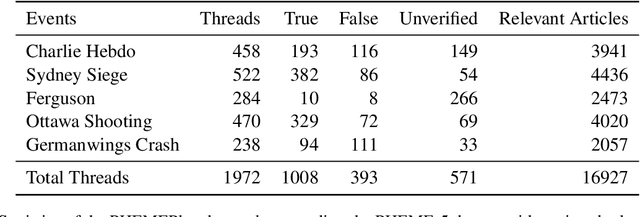
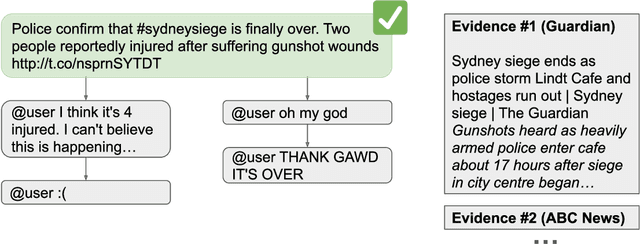


Abstract:Work on social media rumour verification utilises signals from posts, their propagation and users involved. Other lines of work target identifying and fact-checking claims based on information from Wikipedia, or trustworthy news articles without considering social media context. However works combining the information from social media with external evidence from the wider web are lacking. To facilitate research in this direction, we release a novel dataset, PHEMEPlus, an extension of the PHEME benchmark, which contains social media conversations as well as relevant external evidence for each rumour. We demonstrate the effectiveness of incorporating such evidence in improving rumour verification models. Additionally, as part of the evidence collection, we evaluate various ways of query formulation to identify the most effective method.
Supporting peace negotiations in the Yemen war through machine learning
Jul 23, 2022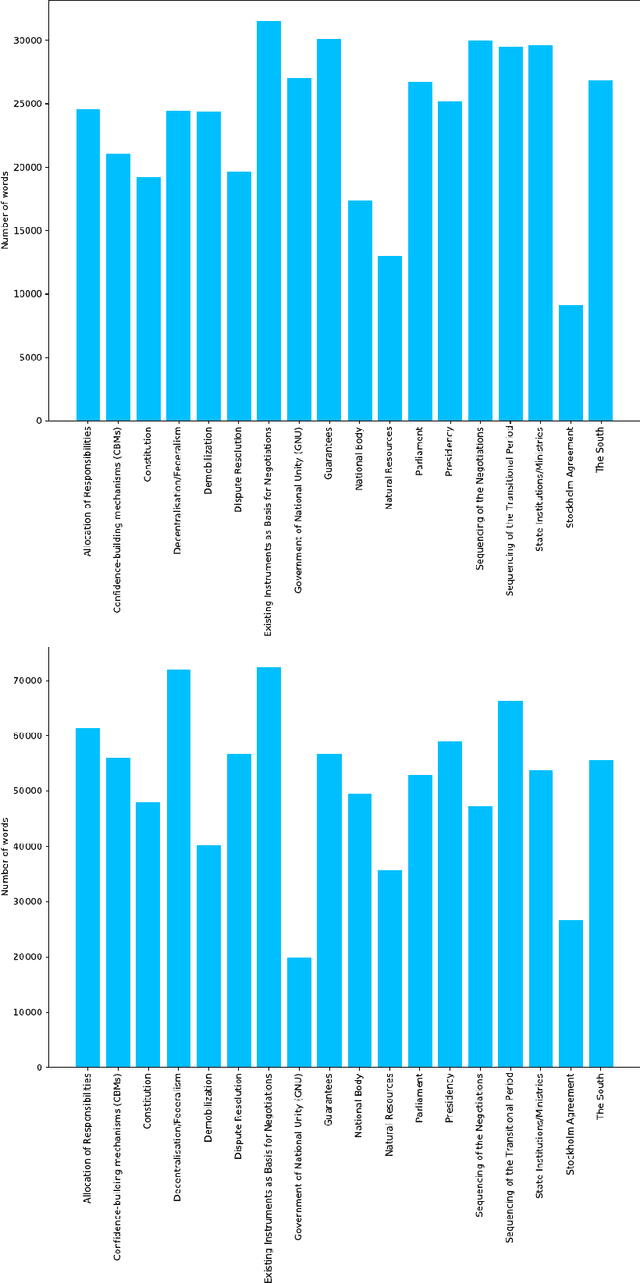
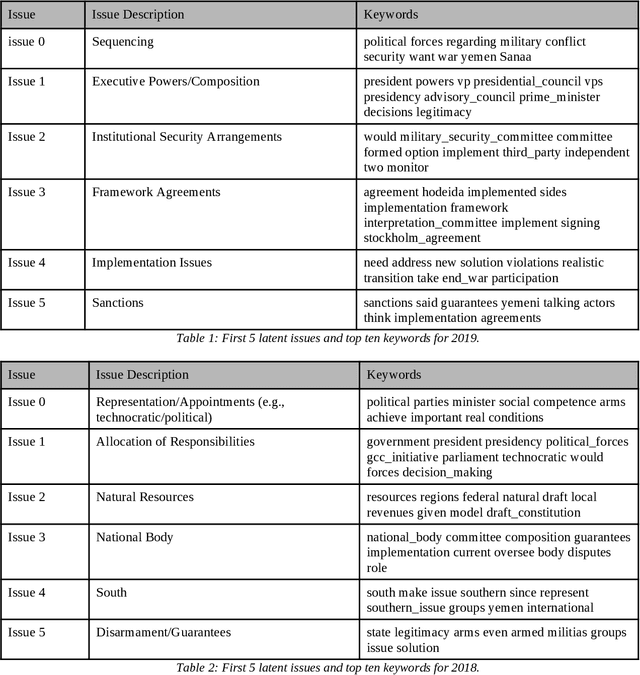
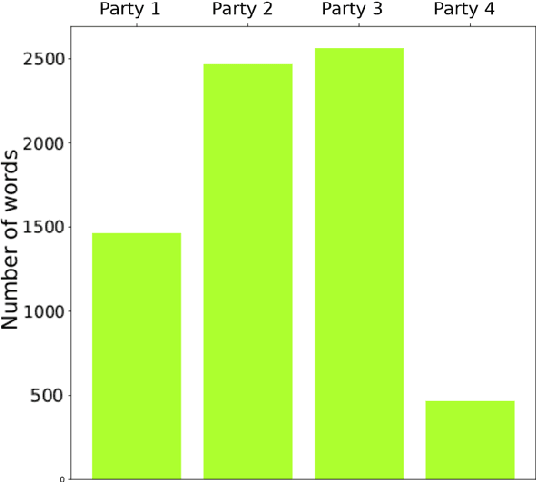
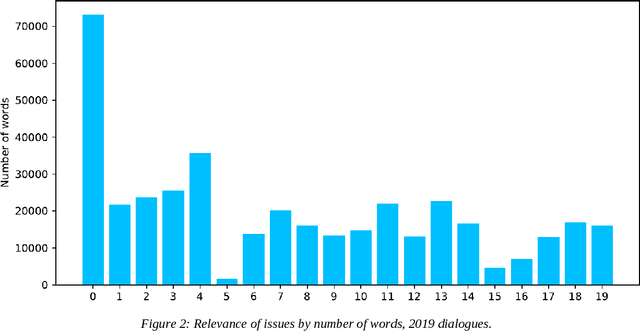
Abstract:Today's conflicts are becoming increasingly complex, fluid and fragmented, often involving a host of national and international actors with multiple and often divergent interests. This development poses significant challenges for conflict mediation, as mediators struggle to make sense of conflict dynamics, such as the range of conflict parties and the evolution of their political positions, the distinction between relevant and less relevant actors in peace-making, or the identification of key conflict issues and their interdependence. International peace efforts appear ill-equipped to successfully address these challenges. While technology is already being experimented with and used in a range of conflict related fields, such as conflict predicting or information gathering, less attention has been given to how technology can contribute to conflict mediation. This case study contributes to emerging research on the use of state-of-the-art machine learning technologies and techniques in conflict mediation processes. Using dialogue transcripts from peace negotiations in Yemen, this study shows how machine-learning can effectively support mediating teams by providing them with tools for knowledge management, extraction and conflict analysis. Apart from illustrating the potential of machine learning tools in conflict mediation, the paper also emphasises the importance of interdisciplinary and participatory, co-creation methodology for the development of context-sensitive and targeted tools and to ensure meaningful and responsible implementation.
Natural Language Inference with Self-Attention for Veracity Assessment of Pandemic Claims
May 05, 2022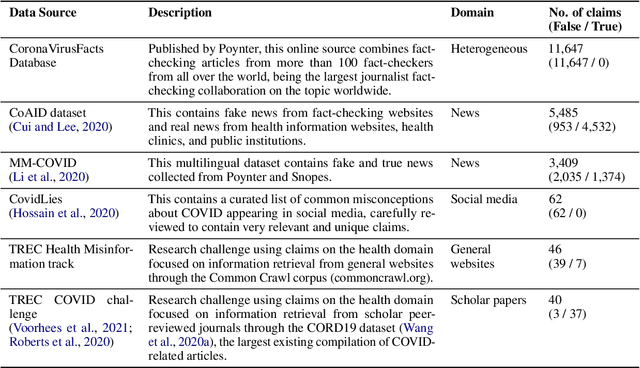
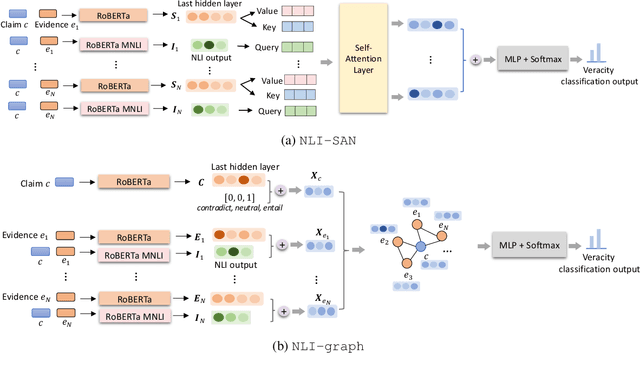
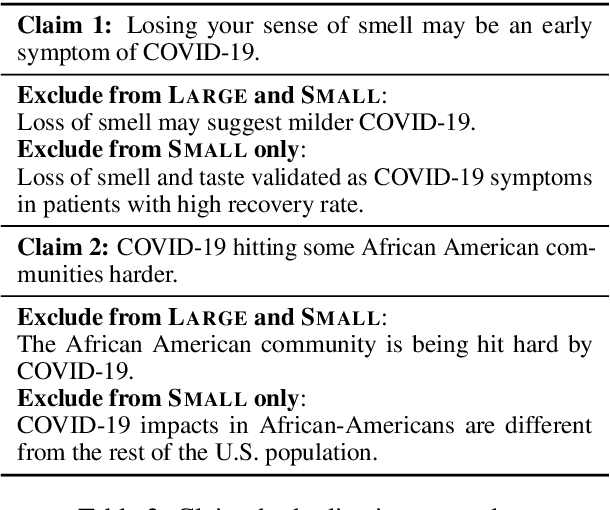
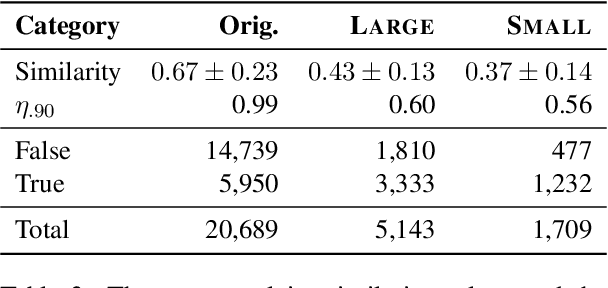
Abstract:We present a comprehensive work on automated veracity assessment from dataset creation to developing novel methods based on Natural Language Inference (NLI), focusing on misinformation related to the COVID-19 pandemic. We first describe the construction of the novel PANACEA dataset consisting of heterogeneous claims on COVID-19 and their respective information sources. The dataset construction includes work on retrieval techniques and similarity measurements to ensure a unique set of claims. We then propose novel techniques for automated veracity assessment based on Natural Language Inference including graph convolutional networks and attention based approaches. We have carried out experiments on evidence retrieval and veracity assessment on the dataset using the proposed techniques and found them competitive with SOTA methods, and provided a detailed discussion.
Evaluation of Abstractive Summarisation Models with Machine Translation in Deliberative Processes
Oct 12, 2021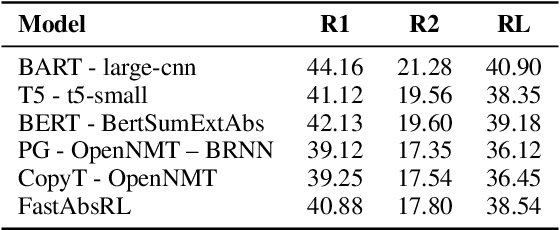
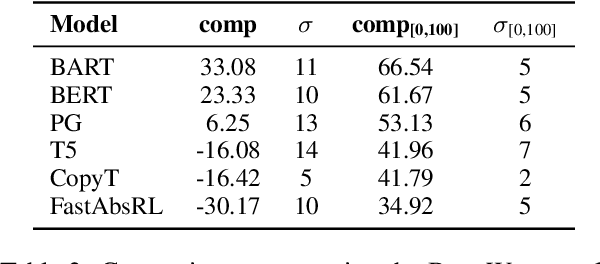
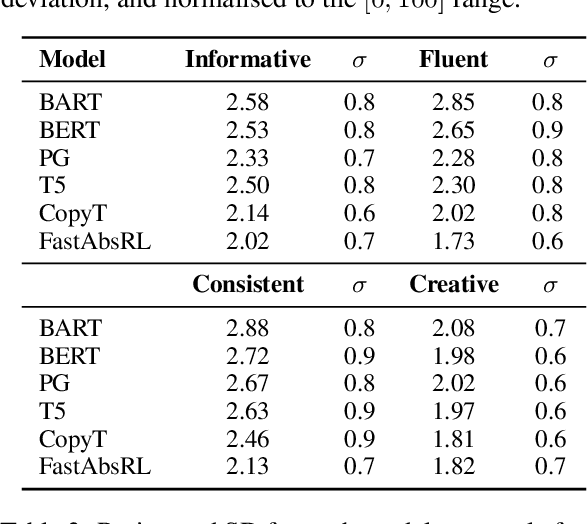
Abstract:We present work on summarising deliberative processes for non-English languages. Unlike commonly studied datasets, such as news articles, this deliberation dataset reflects difficulties of combining multiple narratives, mostly of poor grammatical quality, in a single text. We report an extensive evaluation of a wide range of abstractive summarisation models in combination with an off-the-shelf machine translation model. Texts are translated into English, summarised, and translated back to the original language. We obtain promising results regarding the fluency, consistency and relevance of the summaries produced. Our approach is easy to implement for many languages for production purposes by simply changing the translation model.
A mixed-methods ethnographic approach to participatory budgeting in Scotland
Sep 20, 2021Abstract:Participatory budgeting (PB) is already well established in Scotland in the form of community led grant-making yet has recently transformed from a grass-roots activity to a mainstream process or embedded 'policy instrument'. An integral part of this turn is the use of the Consul digital platform as the primary means of citizen participation. Using a mixed method approach, this ongoing research paper explores how each of the 32 local authorities that make up Scotland utilise the Consul platform to engage their citizens in the PB process and how they then make sense of citizens' contributions. In particular, we focus on whether natural language processing (NLP) tools can facilitate both citizen engagement, and the processes by which citizens' contributions are analysed and translated into policies.
Machine Learning for Mediation in Armed Conflicts
Aug 26, 2021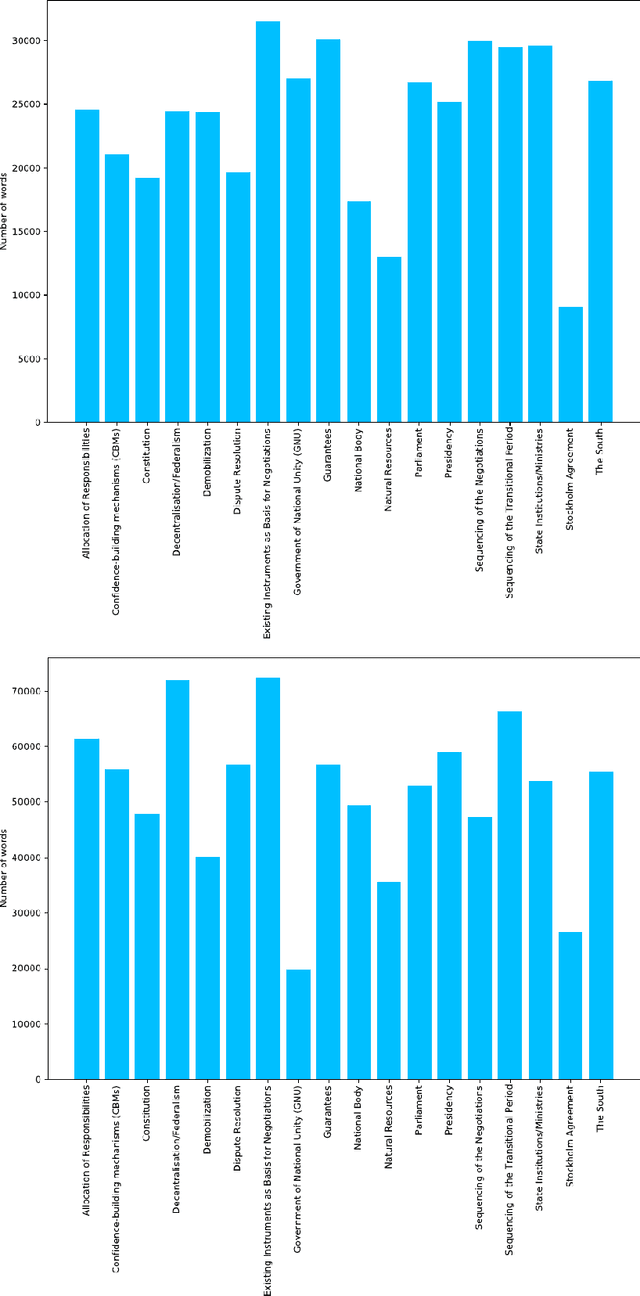
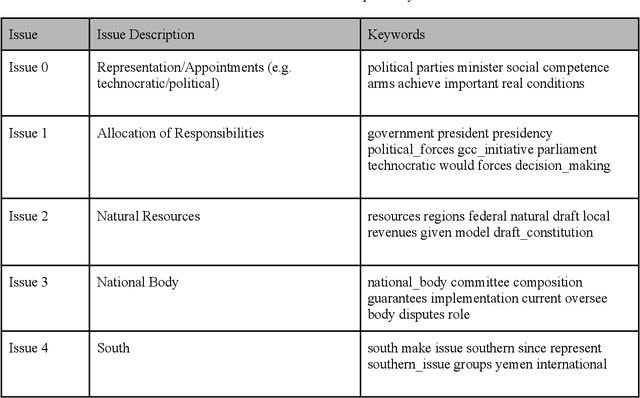
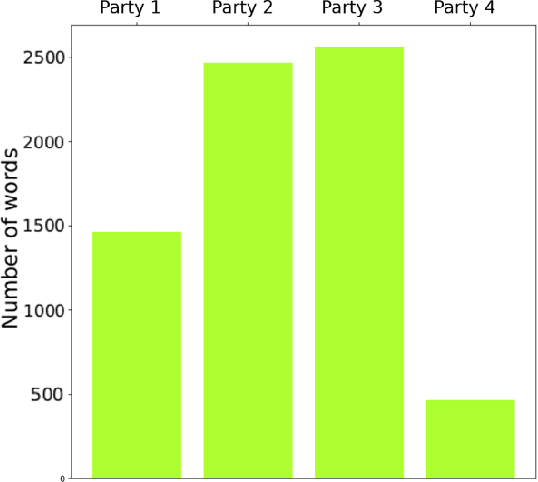
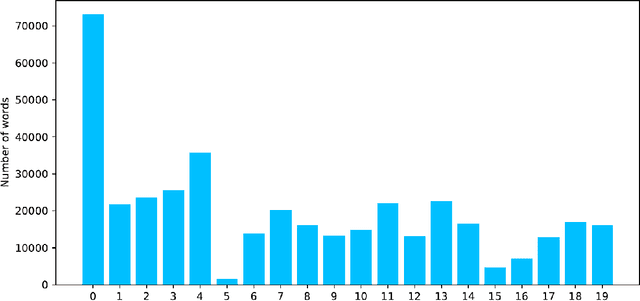
Abstract:Today's conflicts are becoming increasingly complex, fluid and fragmented, often involving a host of national and international actors with multiple and often divergent interests. This development poses significant challenges for conflict mediation, as mediators struggle to make sense of conflict dynamics, such as the range of conflict parties and the evolution of their political positions, the distinction between relevant and less relevant actors in peace making, or the identification of key conflict issues and their interdependence. International peace efforts appear increasingly ill-equipped to successfully address these challenges. While technology is being increasingly used in a range of conflict related fields, such as conflict predicting or information gathering, less attention has been given to how technology can contribute to conflict mediation. This case study is the first to apply state-of-the-art machine learning technologies to data from an ongoing mediation process. Using dialogue transcripts from peace negotiations in Yemen, this study shows how machine-learning tools can effectively support international mediators by managing knowledge and offering additional conflict analysis tools to assess complex information. Apart from illustrating the potential of machine learning tools in conflict mediation, the paper also emphasises the importance of interdisciplinary and participatory research design for the development of context-sensitive and targeted tools and to ensure meaningful and responsible implementation.
Citizen Participation and Machine Learning for a Better Democracy
Feb 28, 2021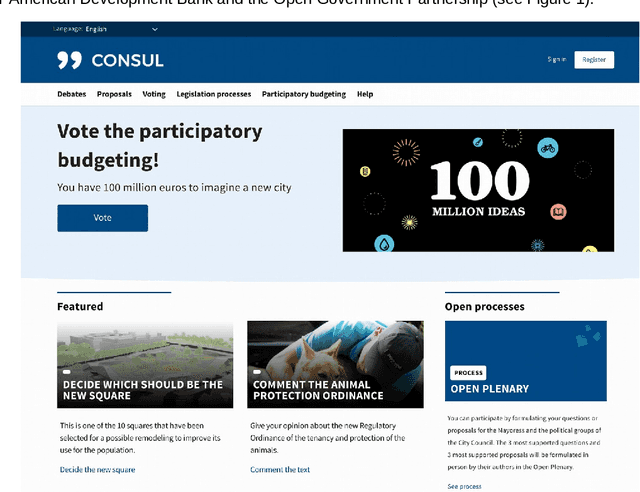
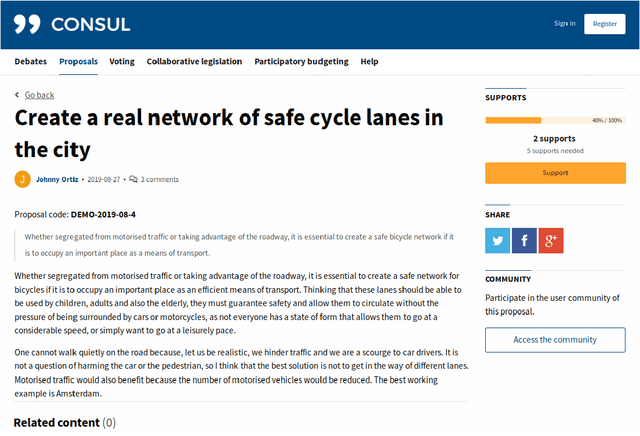

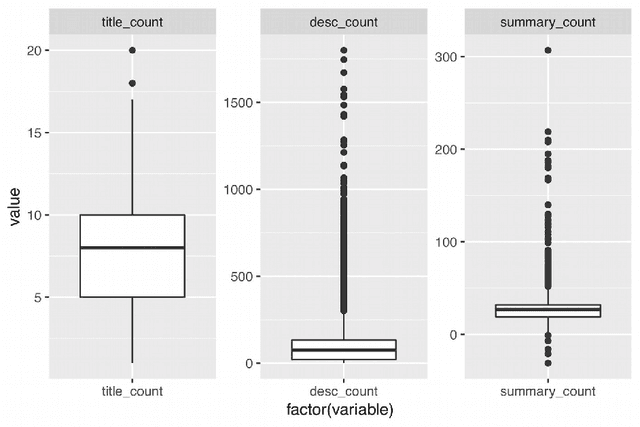
Abstract:The development of democratic systems is a crucial task as confirmed by its selection as one of the Millennium Sustainable Development Goals by the United Nations. In this article, we report on the progress of a project that aims to address barriers, one of which is information overload, to achieving effective direct citizen participation in democratic decision-making processes. The main objectives are to explore if the application of Natural Language Processing (NLP) and machine learning can improve citizens' experience of digital citizen participation platforms. Taking as a case study the "Decide Madrid" Consul platform, which enables citizens to post proposals for policies they would like to see adopted by the city council, we used NLP and machine learning to provide new ways to (a) suggest to citizens proposals they might wish to support; (b) group citizens by interests so that they can more easily interact with each other; (c) summarise comments posted in response to proposals; (d) assist citizens in aggregating and developing proposals. Evaluation of the results confirms that NLP and machine learning have a role to play in addressing some of the barriers users of platforms such as Consul currently experience.
 Add to Chrome
Add to Chrome Add to Firefox
Add to Firefox Add to Edge
Add to Edge